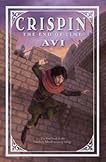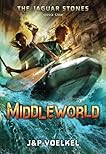from Flashlight Worthy accessed 11/21/09
The 10 Best Books of 2009 for Book Clubs
a book list by Michelle Kerns, Book Examiner for Examiner.com
shelved under Best Books of 2009, Best of..., and Book Club Recommendations
What makes a good book club selection?
You'd think a book with great writing alone would do the trick. If it's a novel, some memorable characters and a kicky plot are nice; if it's non-fiction, something that tells a story that draws you in or that explains a concept remarkably well.
These are the things great books are made of. But are they what great book club selections are made of? I say, no.
The best selections for book clubs are ones that get people thinking. And when people get thinking, it's only a matter of time before the inevitable occurs — they start arguing.
If no one ever argues passionately over your book club reads, don't blame the members for going mute — the books probably don't contain much worth arguing over. Plenty of books are worth reading, but only a fraction of those inspire a heated discussion.
So, harness your urge to engage in a fracas, book clubbers, and pick some books that will really get the fur flying at your next meeting. Here are the 10 best books of 2009 to get you started.
The Magicians by Lev Grossman
There don't seem to be many middle-of-the-roaders when it comes to this book of magic in an all too imperfect world — people either hate it passionately or love it desperately. (I fall in the "love it desperately" camp.) Don't get hoodwinked by the delusion that this is Harry Potter for Grown-ups: it's much, much more. And regardless of how much in the text you disagree over, there is one thing that no one can argue — Mr. Grossman's writing is a thing of beauty and a joy forever.
Complaint: From Minor Moans to Principled Protests by Julian Baggini
Mr. Baggini (whose name I can never, ever read without instantly thinking "Nagini") argues that the usefulness of complaining against really awful things like tyranny and injustice is debased by the habit we've fallen into of complaining about everything from our jobs to how things used to be better back in the day.
This book is great to yammer about, not just because Mr. Baggini picks controversial examples to back up his theory, but because he manages to poke just about everybody — liberals, conservatives, Christians, Muslims — in the eye while doing so. If your group can't get worked up about this book, you guys are either a bunch of Pacifists or zombies.
The Adderall Diaries: A Memoir of Moods, Masochism, and Murder by Stephen Elliott
Where to begin with this book? It's part murder mystery and part personal confession with a hell of a lot of overlap between the two.
Most true crime tomes keep the author firmly out of the picture and do their best to present an unbiased look at the characters involved. Mr. Elliott doesn't even bother pretending to do this. Every aspect of the crime is seen through his perspective, heavily laced with lots of masochistic sex and alcohol and Adderall and unhappiness. It sounds awful, I know, but the result is incredible. Read this in your book club and you'll find yourself arguing vehemently about things you never imagined you'd be talking about in a book club. Definitely NOT a book for mother-daughter groups.
Green Metropolis: Why Living Smaller, Living Closer, and Driving Less are the Keys to Sustainability by David Owen
Try this quote on for size: "A sensitive person's first reaction to the mounting evidence that Americans, especially young Americans, may be losing interest in directly experiencing the natural world is likely to be one of regret and loss, or even despair. But is it necessarily a bad thing, globally speaking? It seems perverse to say so, but sitting indoors playing video games is easier on the environment than any number of (formerly) popular outdoor recreational activites...."
Mr. Owen's Green Metropolis is an apologia of the greatness and greenness of the Big City, particularly — wait for it, wait for it — New York City. (I am now rending my garments, tearing my hair, donning sackcloth and ashes, breaking out the potsherds, at yet ANOTHER reference to the City of Cities.) Suburban book clubs in particular should read this one. The fun part isn't just freaking out at everything Mr. Owen says, but trying to poke holes in his reasoning.
Stitches: A Memoir by David Small
I just can't enthuse enough about this graphic novel/memoir of Mr. Small's childhood in an emotionally barren family. It's a lovely tome for a book club since you'll end up discussing dysfunctional families and childhood trauma along with what makes a good graphic novel and whether or not graphic novels, especially ones of this caliber, should be considered literature. (Psst. They should.)
This book also appears on The Best Books of 2009
Generosity: An Enhancement by Richard Powers
Is there anybody who doesn't like to argue about whether or not the human genome should be tampered with? And if so, how much? To just cure disease? To prevent painful conditions? What about changing behaviors?
Would it be acceptable if it made everyone happy all the time, even after their family was slaughtered? What's nice about Generosity is that it deals with some hard science-y issues in a fictional setting so that those of you yonks who slept through biology in school can still get interested in the conversation.
Shelf Discovery: The Teen Classics We Never Stopped Reading by Lizzie Skurnick
This book really should be a Ladies book club all by itself. It features dozens of snappy little essays about the books that girls of the late 60s, 70s, and 80s grew up reading, — from Are You There, God? It's Me, Margaret to Jacob Have I Loved — but with an adult woman's perspective. Get a bunch of ladies of a Certain Age around reading this — and re-reading all of those books they haven't thought of for years — and you'll never run out of things to jaw over.
Unscientific America: How Scientific Illiteracy Threatens our Future
by Chris Mooney, Sheril Kirshenbaum
I know it seems like I've included an awful lot of science-themed books on this list, but the gap between scientific advances and the average person's understanding and interest in science is enough to make a physicist weep. Unscientific America addresses this issue head-on and the authors aren't afraid to make some pretty harsh statements. They are also fairly obvious (and sometimes, just a tad bit hoity) about their political and social leanings. If you can't manage to get your book club worked up into a frenzy over any other book, this could be the tome you're looking for.
Bright-sided: How the Relentless Promotion of Positive Thinking Has Undermined America
by Barbara Ehrenreich
Here's some positive news for book clubs: this little tome about how the gleeful focus on positive thinking is basically killing us all and threatening to end the world as we know it offers multiple opportunities for free-for-all arguments. Those of us who have never been optimistic a single day in our entire lives won't see what there is to fuss over, but the perky ones among your group will react to this book as they would to a leg amputation. Fun, fun, fun.
A Friend of the Family by Lauren Grodstein
A book club just isn't a book club without at least one depressing tome about a family falling apart and loss of innocence and all that. (Some book clubs read little else. My opinion on innocence? It's highly overrated.) A Friend of the Family fits that bill nicely, but there's a lot more here to discuss and disagree over than your average family drama.
The story is told by Pete, a devoted father whose urge to protect his teenaged son from the advances of a much older, shady-past woman drives him to tear his entire life apart. Or is it really the "devoted father" part that is driving him? Maybe it's something much more unpleasant? Oh, goody.
Subscribe to:
Post Comments (Atom)































No comments:
Post a Comment